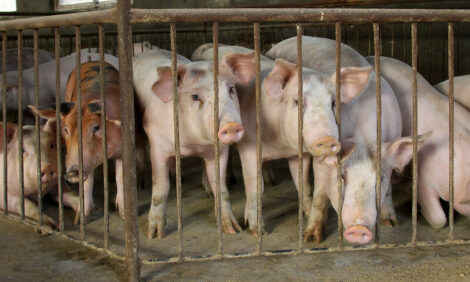



NFUS Puts GM Feed, Animal Transport on EU Radar
SCOTLAND, UK - NFU Scotland has written to the new EU Health and Consumer Commissioner, John Dalli, following his recent decision to authorise cultivation of a new genetically modified (GM) potato, requesting that he apply the same rational thinking to GM tolerance thresholds, GM authorisations and animal transport laws.The Commission is under pressure to review the tolerance thresholds for non-EU approved GM found in animal feed shipments arriving at EU ports. Even when very low levels of non-approved GM material are found in such shipments, the current zero tolerance approach results in these important shipments being rejected. With huge tonnages involved, this has caused distortion in the markets for soya and maize, reduced supplies and driven feed price hikes that threaten our livestock farmers’ viability.
Part of the problem is that the European process for authorising GM varieties for import takes an average of two years to complete.
Animal Transport is also within Commissioner Dalli's brief and the Union has taken the opportunity in its letter to remind him that draft EU Commission proposals to further tighten Animal Transport Regulation 1/2005 would seriously damage Scotland's livestock industry.
Inadequate supplies of non-GM soy
NFUS President, Jim McLaren, who wrote to Commissioner Dalli said: "At present, the threshold for the presence of unauthorised GM material in imported feed is zero, which is leading to rising costs, particularly for soya, which is not grown on a large enough scale in the EU to meet the livestock industry's requirements. In the meantime, the EU GM approval process remains painfully slow compared to other major nations. As any shipments found with low levels of unapproved GM are sent packing, this has fuelled feed price rises for EU producers and left them at a competitive disadvantage.
"In recent weeks, however, there has been speculation that the European Commission may be preparing to propose a threshold for the presence of unauthorised GMs in imports, namely soya for animal feed. NFU Scotland would wholly support the introduction of an appropriate threshold, along with speeding up the process of authorising new GM varieties for both importation and cultivation."
Proper enforcement of animal transport rules required
Mr McLaren continued: "With regard to animal transport regulations, NFUS believes that the Commission's draft proposals, likely to advocate more stringent regulations, is a knee-jerk reaction to the fact that the current Regulation is not being properly enforced in parts of mainland Europe. NFUS is adamant that the EU does not regulate further in this area but instead concentrates on enforcing the current Regulation properly.
"The large number of long journeys successfully undertaken in Scotland is a necessary part of our industry and we maintain an excellent record of animal welfare that has been underpinned by meeting the EU requirements on competence testing, vehicle authorisations and inspections. However, unacceptable failings are still occurring across mainland Europe.
"In a bid to resolve this, we have developed a working document outlining a pilot project to test new ways of using satellite surveillance to ensure that all EU Member States adhere to the current regulation. NFUS has expressed a wish to meet Commissioner Dalli soon to discuss the potential of this scheme before any new proposals are developed any further. If the Commissioner chooses to meet with us, we would also be keen to discuss the issues surrounding GM authorisations and thresholds of non-authorised GMs in imported feeds."








